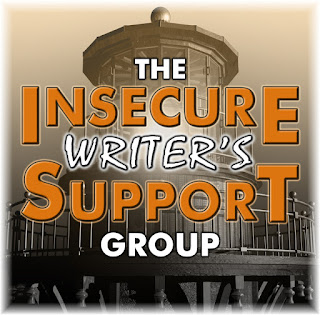After all, Got Goals? is about goals, which means the New Year's goals I set every year fall nice and squarely into that wheelhouse.
By the way, if you want a bit of extra encouragement and accountability this year, you're welcome to join in the fun. The Got Goals? Bloghop is a bunch of us setting crazy or just crazy important goals, and then posting monthly updates (usually on the last Friday of every month) on how we did. This month we're doing it a bit different because of the time around New Years being so hectic, but you can click here for details.
One more thing... If you rather want to see this post on Wordpress, click here.
Looking at how I did...
To be honest, I probably couldn't have left this post later than I have. Why? Because it really feels like I didn't achieve that much in 2017. I think the worst thing about 2017 was that I spent most of it fighting to keep afloat while never being able to stand still to actually build much toward my career.
The only exception is my freelance work, but the truth is that freelance work, while saving our backsides multiple times this year, isn't really my long-term plan. (That would be... you know... writing.)
That said, I'm not one to look gift blessings in the mouth, so I'm going to leave the whining there for now.
So let me get down to business and go through my 2017 goals one by one. Another slight annoyance because I did it as a vlog and never wrote them down. Which isn't all that good for my keeping track of them, huh? This is me, then, listening to the vlog and transcribing the goals, then commenting on them.
Goal 1: Make a Living as a Writer
Hahaha okay. So this actually went well, but it also involves how I define being a writer for the purposes of this goal. And that is, not only as someone who writes but as someone who knows how to write and publish. So making money from editing for someone counts.
Which is a good thing, because I'm in "making a living" territory now. When I recorded this goal, I was happy to say that I was earning around minimum wage in my country (around $300) every month, which was impressive in that I had only started this goal in September 2016.
But basically, after January, there seemed to be a shift in the income I made from freelancing, and the average moved up to $500 every month. And in the last three months, that average shifted to $667 per month, which was equal to the salary I used to take from the old business I left. And in December, I almost made $1,000. Which is was awesome, because this was an amount where I could actually feel the money making things easier for my family.
That said, I suspect the wheels will come off with the rest of my goals. Let's see...
Goal 2: Publish Wo6C3.
Not even close, thanks to me needing to redraft a 250k-word monster during very possibly the worst year of my life.
Goal 3: Publish the sequel to Endless.
Hahahahahahaha *sob*
Goal 4: Read 25 Books
I read 5 for fun. If you count the ones I read for freelancing, though, the number is closer to 30. It was a good year for that. And the nice thing is that I had the privilege of working on some amazing works with people, and learning a lot because sometimes the subject matter was out of my comfort zone.
Goal 5: Spend More Time Doing Crafty Things
This is did, which is probably what kept me sane. First, I made some baby blankets. Then, I'm also working on a needlepoint tapestry that I've been working on for a while now. It has close to 260,000 stitches, so I'm never wondering about what I need to do in the year.
Goal 6: Be More Social
I do think I was, but then, that was only because my benchmark was 2015, during which I saw very few people. I did sign up for more live stream chats and the like, putting myself out there more, which I also see as being in the spirit of what this goal is about.
Goal 7: Get in the Habit of Writing Every Day
Not even close.
So Overall...
I actually did achieve more than I thought I did, although I managed very little in the way of writing, which upsets me.
So I'm definitely going to have to pull my socks up in that regard.
Come back tomorrow if you want to see what I want to do in 2016.
But a New Year's Eve post isn't a New Year's Eve post without some nice thoughts, so here's a New Year's Poem I wrote.
How did your 2017 go? Have you set goals for 2018? Don't forget to sign up for the Got Goals? Bloghop if you want to join in.















